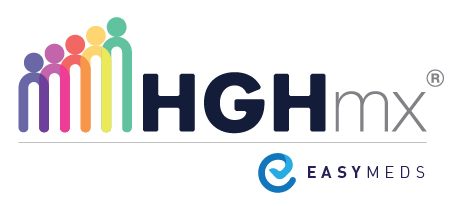Human growth hormone, also known as HGH, is a hormone responsible for growth, cell reproduction, and regeneration in humans. HGH is essential for the growth and development of bone and muscle tissue, and it also plays a role in regulating body composition, metabolism, and other bodily functions. HGH levels naturally decline as we age, but it can be artificially synthesized and used for medical purposes such as treating growth hormone deficiency and improving athletic performance.
What Are HGH Injections for Athletes?
HGH injections are typically used to treat growth hormone deficiency in children and adults, as well as other medical conditions such as Turner syndrome and chronic kidney disease. However, some athletes and bodybuilders have used HGH injections to enhance their athletic performance or improve their physique.
Is it Legal for Athletes to use HGH?
The use of performance-enhancing substances like HGH is strictly prohibited in sports and is considered cheating. It is often difficult to prove if an athlete has used HGH or other banned substances, as some forms of HGH are naturally produced by the body, and testing for its use is not always foolproof.
Using performance-enhancing substances not only violates the rules of fair play, but it can also have serious health consequences for the athletes who use them. The use of human growth hormone (HGH) is prohibited by major sports organizations, including the World Anti-Doping Agency (WADA) and the International Olympic Committee (IOC). However, some athletes have been caught or accused of using HGH to enhance their performance.
Various Athletes That Used HGH
- Barry Bonds, MLB
- Shawne Merriman, NFL
- Marion Jones,Track and field athlete
- Justin Gatlin, Olympic sprinter
- Alex Rodriguez, MLB
- Maria Sharapova, Tennis
- Bill Romanowsk, NFL
- Ray Lewis, NFL
- Brian Cushing, NFL
- Julius Peppers, NFL
- James Harrison, NFL
Cyclists that used HGH
- Lance Armstrong: Armstrong admitted to using HGH during his seven Tour de France wins.
- Alberto Contador: Contador tested positive for HGH in 2010 and was suspended from cycling for two years.
- Michael Rasmussen: Rasmussen admitted to using HGH during his career and was banned from cycling for two years.
- Tyler Hamilton: Hamilton admitted to using HGH during his cycling career and was suspended for eight years.
- Levi Leipheimer: Leipheimer admitted to using HGH when he testified against Armstrong in a doping investigation.
So why do athletes use HGH if it’s not legal?
HGH can increase muscle mass, strength, and endurance, which can improve an athlete’s performance in sports. Here’s the breakdown…
Improve Endurance
Human growth hormone (HGH) can improve endurance by enhancing the body’s ability to produce energy. HGH stimulates the liver to produce insulin-like growth factor-1 (IGF-1), which can increase the body’s use of glucose and fatty acids for energy production. This process is known as lipolysis, which is the breakdown of fat stores for energy.
HGH can also stimulate the production of red blood cells, which carry oxygen to the muscles. This can increase endurance by improving the body’s ability to use oxygen during exercise.
Moreover, HGH can help reduce fatigue and improve recovery time, allowing athletes to train harder and more frequently. This can lead to greater gains in endurance and overall athletic performance.
Speed up recovery
HGH can help repair damaged tissues and promote faster healing, which can be beneficial for athletes who are recovering from injuries. GH stimulates the production of insulin-like growth factor-1 (IGF-1), which plays a key role in tissue growth and repair.
During exercise or physical activity, muscle tissue can become damaged, leading to muscle soreness and inflammation. HGH can help reduce inflammation and promote the repair and regeneration of damaged muscle tissue. This can help athletes recover more quickly from workouts or injuries and get back to training sooner.
HGH can also help promote the growth and repair of bone and cartilage tissue, which can be beneficial for athletes who are recovering from bone or joint injuries.
Reduce body fat
HGH can help reduce body fat, which can be especially useful for athletes who need to maintain a certain weight or body composition for their sport. Human growth hormone (HGH) can help reduce body fat by increasing the body’s metabolism and promoting the breakdown of fats for energy.
HGH can also help reduce insulin resistance, which can lead to increased fat storage. By reducing insulin resistance, HGH can promote the use of glucose and fatty acids for energy production, rather than storing them as fat.
In addition, HGH can increase muscle mass, which can help increase the body’s metabolism and promote the burning of calories, even at rest.
Increase Muscle Mass
HGH can stimulate the growth and regeneration of muscle tissue, leading to an increase in muscle mass and strength. IGF-1 stimulates the production of new muscle cells (known as myoblasts) and promotes the growth and differentiation of these cells into mature muscle fibers. This leads to an increase in the overall size and strength of the muscle.
HGH can also increase the production of collagen, which is a key component of connective tissue. This can improve the strength and integrity of tendons and ligaments, which can help prevent injuries during exercise or physical activity.
In addition, HGH can help increase the body’s production of testosterone, which is an important hormone for muscle growth and development.
Enhance bone density
IGF-1 stimulates the activity of bone-forming cells (known as osteoblasts) and increases the production of collagen, which is a key component of bone tissue. This leads to an increase in the overall density and strength of the bone.
In addition, HGH can also help reduce the activity of bone-resorbing cells (known as osteoclasts), which can lead to a reduction in bone loss and an increase in bone density.
HGH can also help improve the absorption of calcium and other minerals from the diet, which are essential for the development and maintenance of strong bones.
Conclusion
The use of HGH and other performance-enhancing substances is illegal in sports and can have serious consequences for the career of an athlete. Athletes who use HGH may face disciplinary action, including suspension or even lifetime bans. That said, it doesn’t stop them from using it because of the difficulty of screening.







